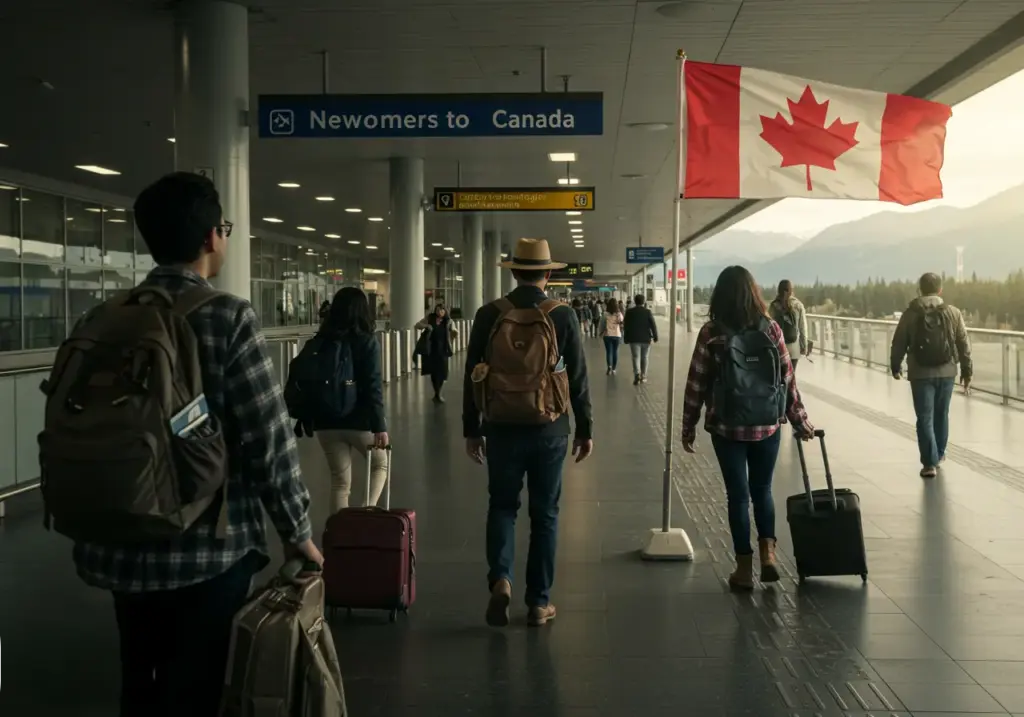Travel Tips for Newcomers to Canada 2025

Traveling for the first time can be exhilarating, but it can also be intimidating. With so much to consider—from logistics to local culture—there’s a lot to prepare. To help ease your nerves, we’ve put together an extensive guide packed with travel tips for newcomers that will help you feel confident and ready to take on your new adventure. Whether you’re visiting a new country, traveling solo, or exploring with a group, these first-time traveler tips are essential for ensuring that your trip goes smoothly.
This beginner travel guide will provide you with actionable insights, from packing smart to understanding cultural differences, so you can maximize your experience. Keep reading to discover what you need to know before you embark on your international travels.
1. Research Your Destination Thoroughly for Newcomers to Canada
Before embarking on any trip, it’s crucial to conduct thorough research about the country or city you plan to visit. This will help you feel more confident upon arrival and avoid unexpected challenges.
Understanding your destination’s culture, climate, and safety standards is essential. Start by learning about the visa requirements, especially if you’re visiting a country that has specific entry rules. For instance, countries may require vaccinations, specific documentation, or travel permits. Visit official sites like travel.gc.ca or the IATA Travel Centre for up-to-date information on the documents you’ll need.
Key Tips
- Visa Requirements: Confirm if you need a visa or a travel permit before you leave. Many countries require travelers to apply in advance.
- Language and Communication: If you’re traveling to a non-English speaking destination, learning a few basic phrases can make a huge difference. At the very least, learn how to say “hello” and “thank you.”
- Safety and Security: Check travel advisories to understand the safety conditions in your destination. Websites like Lonely Planet provide helpful safety guidelines.
- Health and Vaccination: Some destinations may require vaccinations like yellow fever or malaria medication. Ensure that you’re up to date on your vaccinations and carry any necessary medications.
Find out if you are eligible to get in Canada →
2. Pack Smart, Not Heavy
Packing can be one of the trickiest aspects of travel. Overpacking is a common mistake, and it’s easy to throw everything you think you might need into your suitcase. However, packing light and smart will make your journey far more enjoyable.
When traveling for the first time, you’ll likely want to be prepared for every scenario. While it’s important to bring the essentials, you don’t want to carry unnecessary weight. Think about your destination’s climate and what activities you’ll be doing. Focus on versatile clothing and lightweight items that won’t take up too much space.
Packing Tips
- Essentials First: Pack items like your passport, tickets, and essential toiletries. Don’t forget a small first-aid kit, including things like band-aids, painkillers, and any prescription medications.
- Use Packing Cubes: These help you organize your clothes and accessories, saving time when unpacking and keeping your luggage neat.
- Think Comfort: Bring clothing that can be layered based on the weather. A lightweight jacket, comfortable shoes, and versatile clothing will keep you prepared for any situation.
- Power and Connectivity: Don’t forget universal adapters, portable chargers, and any gadgets that can help you stay connected.
- Copies of Important Documents: It’s always wise to bring copies of your passport, visa, and important travel documents in case of loss or theft.
3. Budget and Manage Your Money
One of the most important aspects of travel is managing your finances. Budgeting properly will ensure you don’t run out of money and can enjoy the activities and experiences you want during your trip.
Begin by researching the cost of living in your destination. Cities like Paris or New York tend to be more expensive, while others might offer more affordable accommodations and dining options. Use budget apps to track your expenses and ensure that you’re staying within your limits. It’s always a good idea to notify your bank or credit card company about your travel plans so they don’t block transactions when they notice foreign spending.
Money Tips for Newcomers to Canada
- Currency Exchange: Consider exchanging some money ahead of time. Avoid exchanging currency at airports, as they often offer less favorable rates.
- Use Credit Cards Wisely: Choose credit cards with no foreign transaction fees to avoid extra charges when making purchases abroad.
- Avoid ATM Fees: Check with your bank to find out if it has any partner banks in your destination to avoid unnecessary ATM withdrawal fees.
- Keep Cash in Multiple Places: It’s wise to carry a small amount of local currency for tips or small purchases, but don’t carry too much cash on you for security reasons.
- Budget Travel Apps: Apps like Splitwise or Mint can help you keep track of your travel expenses in real time.
4. Learn Airport and Flight Basics
Airports can be intimidating, especially for first-time travelers. There’s a lot of paperwork and steps involved, from check-in to customs. But knowing what to expect will make navigating airports much smoother.
Start by familiarizing yourself with your airline’s policies, such as baggage allowances and check-in procedures. Download your airline’s app for real-time updates, and ensure you arrive at the airport with ample time to go through security checks.
Flight Tips
- Arrive Early: Arrive at least 3 hours before your international flight to allow enough time for check-in, security, and customs.
- Know Your Gate: Keep an eye on your boarding gate and any announcements, as airports can change your gate last-minute.
- Stay Comfortable During Long Flights: Bring a neck pillow, snacks, and a water bottle to keep you comfortable during your journey.
- Documents Ready: Keep your passport, tickets, and any other necessary documents handy during the security checks.
- Stay Hydrated: Airplane cabins are often dry, so drink plenty of water and avoid excessive caffeine.
5. Stay Safe and Connected as a Newcomer to Canada
Safety should always be a top priority when traveling, especially when you’re in a new place. To ensure that you have a safe trip, stay aware of your surroundings, avoid risky situations, and stay connected with friends or family back home.
Before leaving for your trip, ensure you’ve shared your itinerary with someone you trust. Also, consider getting a local SIM card or an international data plan to help you stay connected to maps, transportation, and emergency services.
Safety Tips
- Share Your Itinerary: Keep your family or friends updated on your travel plans, and check in regularly.
- Don’t Walk Alone Late at Night: Stay in well-lit areas, and avoid walking alone, especially in unfamiliar neighborhoods.
- Use Technology for Safety: Download helpful apps like Google Maps or a personal safety app to share your location with others.
- Stay Informed: Keep an eye on any safety alerts or updates, especially related to health or natural disasters in your destination.
- Keep Documents Secure: Always lock your luggage or backpack, and keep your passport and important documents in a safe place.
6. Embrace the Experience for Newcomers to Canada
Traveling isn’t just about sightseeing; it’s about experiencing new cultures, trying new foods, and meeting new people. Don’t rush through your trip—take time to enjoy the unique aspects of your destination.
Be open to stepping out of your comfort zone. Try local foods, engage with local people, and embrace unexpected moments. Whether it’s getting lost in a market or having an impromptu conversation with a local, travel is full of surprises.
Book Your Consultation Session →
Experience Tips
- Be Open to New Experiences: Try local food, visit off-the-beaten-path attractions, and experience what makes the destination unique.
- Engage with Locals: Don’t just visit the tourist sites; talk to the locals and ask them for recommendations on where to eat or what to see.
- Travel with a Flexible Mindset: Some of the best travel moments come from unexpected experiences, so don’t be afraid to go with the flow.
- Stay Healthy: Make sure to drink plenty of water, get enough rest, and take time to relax and recharge.
- Get Travel Insurance: Accidents happen. Travel insurance can protect you in case of illness, theft, or trip cancellations.
You’re Ready to Explore!
No one starts as an expert traveler, but with these travel tips for newcomers, you’ll be well on your way to having a memorable, stress-free trip. As you gain more experience, you’ll naturally become more confident and efficient in your travels. So go ahead—book that flight and explore the world!
For more up-to-date travel advice, check out resources like Lonely Planet, IATA, and Travel.gc.ca.











